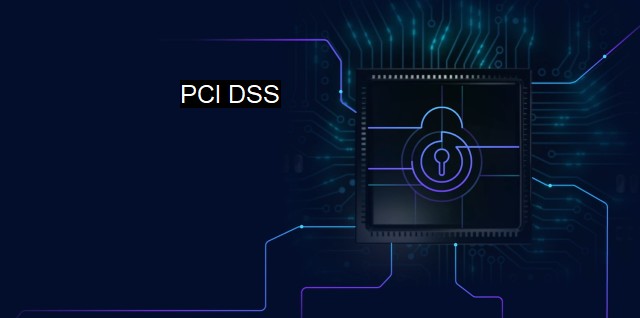What is PCI DSS?
Protect Your Business from Cybersecurity Threats: Understanding the Importance of PCI DSS Compliance
PCI DSS refers to the Payment Card Industry Data Security Standard. It is a well-known cybersecurity standard for companies and organizations that process, store, or transmit credit card information. It was instituted to help provide a baseline of technical and operational requirements designed to protect consumers' credit card data. The scope of PCI DSS covers all entities involved in payment card processing, including merchants, processors, acquirers, issuers, and service providers, as well as companies that store, process, or transmit cardholder data and/or sensitive authentication data.The creation of PCI DSS is attributed to five global payment brands: Visa, MasterCard, American Express, Discover, and JCB International, who formed the PCI Security Standards Council. Recognizing the escalating cyber threats targeting credit card information, these companies initiated this universal standard to curb data theft and ensure a secure card payment ecosystem.
PCI DSS is comprised of 12 main requirements. These requirements focus on building and maintaining a secure network, protecting cardholder data, maintaining a vulnerability management program, implementing strong access control measures, regularly monitoring and testing networks, and ensuring an information security policy is maintained. Each of the 12 requirements details security controls and processes that businesses must put in place to secure cardholder data.
Sticking to these requirements is paramount for businesses as any lapse can lead to security weaknesses, enabling hackers to gain unauthorized access to cardholder data, hence causing serious financial and reputational damage.
It's important to realize that PCI DSS isn't a law, but a standard. Non-compliance doesn't result in legal consequences, but businesses risk hefty fines, contract termination by a bank or credit card companies, and even exclusion from accepting credit card payments in the event of a data breach associated with non-compliance.
Companies must assess their compliance with the PCI DSS annually and attest their compliance to their acquiring banks depending on a company's volume of transactions, they might need to receive an audit from a professional security assessor.
From a cybersecurity perspective, companies might need to integrate antivirus solutions to fulfill PCI DSS requirements. Antivirus software is integral to PCI compliance as it helps protect systems against malware and other digital threats. A failure to use an updated antivirus can leave an organization open to a data breach, posing a considerable threat to cardholder data, hence violating PCI DSS standards.
Antivirus solutions help organizations achieve comprehensive protection from malware, ransomware, and phishing attacks. They carry out regular scans of a system’s software, identify threats and remove malicious software that could compromise consumers’ sensitive data. antivirus solutions also provide real-time detection and protection, ensuring credit card data remains secure at all times.
PCI DSS serves an essential role in the cybersecurity framework for companies that handle cardholder data. Adhering to these standards not only aids companies in defending against the growing threat of cybercrime but also protects consumers’ sensitive information. The use of security tools like antivirus software aids in maintaining compliance with these guidelines, ultimately serving as an effective barrier against cyber threats.

PCI DSS FAQs
What is PCI DSS and why is it important for cybersecurity and antivirus?
PCI DSS stands for Payment Card Industry Data Security Standard. It is a set of requirements developed by major credit card companies to ensure that organizations that accept, process, store or transmit credit card information maintain a secure environment. Compliance with PCI DSS is important for cybersecurity and antivirus as it helps prevent data breaches, protects sensitive information, and ensures the safety of financial transactions.Who needs to comply with PCI DSS?
Any organization that accepts, processes, stores or transmits credit card information needs to comply with PCI DSS. This includes merchants, service providers, and third-party vendors. Compliance requirements may vary depending on the size and scope of the organization and the number of transactions processed.What are the penalties for non-compliance with PCI DSS?
Penalties for non-compliance with PCI DSS can be severe and may include fines, legal action, loss of reputation, and even the inability to process credit card transactions. The cost of non-compliance can be significant, including the direct costs of remediation, forensic investigations, and legal fees, as well as indirect costs such as lost business, reduced customer confidence, and damage to brand reputation.How can organizations ensure compliance with PCI DSS?
Organizations can ensure compliance with PCI DSS by implementing and maintaining effective security measures, policies, and procedures. This may include implementing firewalls, encrypting data, regularly monitoring and testing security systems, restricting access to sensitive data, and training employees on security best practices. Compliance can also be audited by a Qualified Security Assessor (QSA) or Self-Assessment Questionnaire (SAQ). Regular testing and assessment are important to maintain compliance and ensure ongoing security.| | A | | | B | | | C | | | D | | | E | | | F | | | G | | | H | | | I | | | J | | | K | | | L | | | M | |
| | N | | | O | | | P | | | Q | | | R | | | S | | | T | | | U | | | V | | | W | | | X | | | Y | | | Z | |
| | 1 | | | 2 | | | 3 | | | 4 | | | 7 | | | 8 | | |||||||